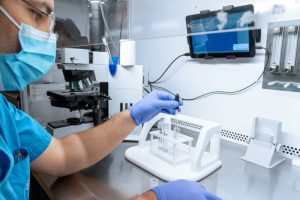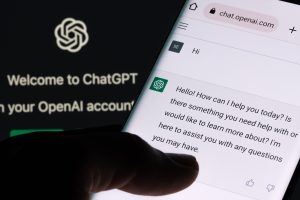Significant Funding for Precision Oncology
Singapore’s fight against cancer has received a significant boost with a $50 million grant awarded to two research teams at the National Cancer Centre Singapore (NCCS). The Ministry of Health, through the National Medical Research Council (NMRC) and MOH Holdings Pte Ltd, has allocated these funds under the NMRC Open Fund-Large Collaborative Grant (OF-LCG) programme.
The funding aims to enhance understanding, diagnosis, and treatment of lymphoma and colorectal cancer, focusing on precision oncology to improve patient outcomes.
Focus on Innovative Lymphoma Treatments
One team, led by NCCS in collaboration with various institutions, will focus on Asian-centric lymphomas through the SYMPHONY 2.0 programme. This initiative builds on a decade of work to address the unique needs of Asian lymphoma patients. Lymphoma, the fifth most common cancer in Singapore, presents diagnostic and treatment challenges due to its over 80 subtypes.
Professor Lim Soon Thye, lead investigator and CEO of NCCS, highlighted that certain lymphomas, like Natural Killer/T-cell lymphoma (NKTCL), are more prevalent in Asia and have poor survival rates due to limited study and treatment options. “Our research programme brings together an extensive network of local collaborators and academic partners to tackle the unmet clinical needs and challenges in lymphoma. The vibrant ecosystem in Singapore, backed by strong infrastructure and talented manpower, enables us to optimise the translation of discoveries from bench to bedside,” said Professor Lim.
SYMPHONY 2.0 will focus on five thematic areas, including refining lymphoma diagnosis, understanding drug resistance, and developing new therapeutic platforms. The programme aims to deliver three key projects. Establishing a comprehensive Lymphoma Atlas, using AI to optimise drug combinations, and improving accessibility to CAR-T cell therapy. This multifaceted approach seeks to transform lymphoma care and enhance survival rates.
Advancing Colorectal Cancer Screening and Treatment
The second team will develop new methods for screening, detecting, and treating colorectal cancer. Colorectal cancer is the most common cancer in Singapore. This research, under the Colo-SCRIPT programme, seeks to develop non-invasive blood and stool tests and AI-enabled endoscopy methods to complement current screening practices. Colorectal cancer kills around 80 patients each month. This highlights the need for early detection and precise treatment.
Associate Professor Iain Tan, co-leading the Colo-SCRIPT research, aims to harness the biology of different colorectal cancer subtypes to guide prevention, diagnosis, and treatment. Early detection and appropriate treatment could significantly improve survival rates. “We have brought together Singapore’s leading clinicians and scientists in colorectal cancer to embark on a first-of-its-kind subtype-biology focused study that spans the entire clinical trajectory of disease from pre-cancer to advanced cancer. Working together across disciplines and institutions, we are excited to launch this national initiative to tackle our most common cancer,” said Associate Professor Tan.
The Colo-SCRIPT programme will enrol two national cohorts to study early and late-stage disease. By focusing on pre-cancer stages and molecular epidemiology, the team aims to develop targeted prevention and treatment strategies. This research is crucial for reducing colorectal cancer incidence and improving patient outcomes through precision medicine.
Collaborative Efforts for Breakthroughs
The SYMPHONY 2.0 and Colo-SCRIPT programmes involve collaboration among multiple institutions, including the Agency for Science, Technology and Research (A*STAR), the Cancer Science Institute of Singapore, the Yong Loo Lin School of Medicine at the National University of Singapore, and others. The grant supports these five-year programmes in their efforts to revolutionise cancer treatment in Singapore.
Addressing Unmet Needs in Lymphoma
Lymphomas, especially in Asian populations, remain less studied compared to Western counterparts. Therefore, SYMPHONY 2.0 aims to build on existing expertise and knowledge, leveraging emerging technologies to address unmet needs. The programme will focus on five thematic areas. Key projects include establishing a Lymphoma Atlas, determining effective drug combinations using AI, and improving accessibility to CAR-T cell therapy.
The establishment of the Lymphoma Atlas will centralise patient data, including genetic, environmental, and clinical information. Consequently, this resource will enable researchers to develop personalised treatment plans and improve prognostic tools. Furthermore, it will facilitate a more holistic approach to understanding and treating lymphomas. This will ensure that advancements benefit a broader range of patients.
Additionally, the use of AI in clinical trials aims to identify optimal drug combinations, enhancing treatment efficacy and patient outcomes. Professor Lim Soon Thye stated, “By integrating multi-omic and clinical data for rare and common lymphomas, this team is establishing an Asian Lymphoma Atlas which will transform lymphoma care through artificial intelligence.”
Enhancing Colorectal Cancer Research
Colorectal cancer research under Colo-SCRIPT will enrol two national cohorts to study early and late-stage disease. The programme focuses on five thematic areas: early carcinogenesis, molecular epidemiology, cellular vulnerabilities, tumour immunology, and detection and characterisation. The research aims to improve prevention, early detection, and treatment of colorectal cancer by understanding its distinct molecular subtypes.
The Colo-SCRIPT programme will develop new diagnostic methods and investigate the role of genetic, environmental, and microbial factors in cancer progression. By understanding these factors, researchers can develop targeted interventions to prevent and treat colorectal cancer. The programme also aims to bring new drugs into clinical trials, offering hope for better treatment options for advanced-stage patients.
Associate Professor Tam Wai Leong, Deputy Executive Director of A*STAR’s Genome Institute of Singapore, emphasised, “It is increasingly clear that colorectal cancer is composed of distinct molecular subtypes and therefore patients need to be managed and treated differently. The one-size-fits-all approach should no longer be the way forward. By better understanding the underlying mechanisms of the complex disease, we will have an opportunity for early intervention to interrupt disease progression and eventually, develop tailored treatment strategies which are more effective for patients.”
The Future of Precision Oncology
The $50 million grant represents a significant investment in the future of precision oncology in Singapore. By supporting these extensive research programmes, the Ministry of Health and NMRC aim to drive breakthroughs in cancer treatment. Ultimately, improving patient outcomes and reducing the burden of cancer on the healthcare system.
Image credit: National Cancer Centre Singapore
References
SG Ramps Up Cancer Fight with S$50 million in National Grant Funding for Precision Oncology. (n.d.). https://www.nccs.com.sg/news/research/sg-ramps-up-cancer-fight-with-50-million-in-national-grant-funding-for-precision-oncology














